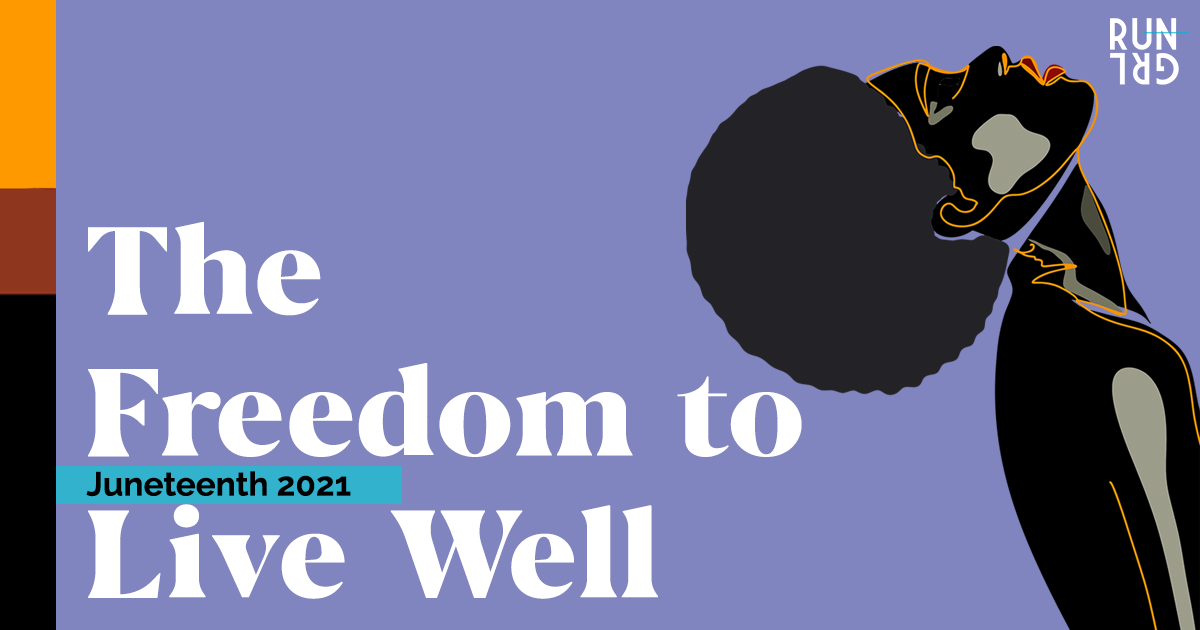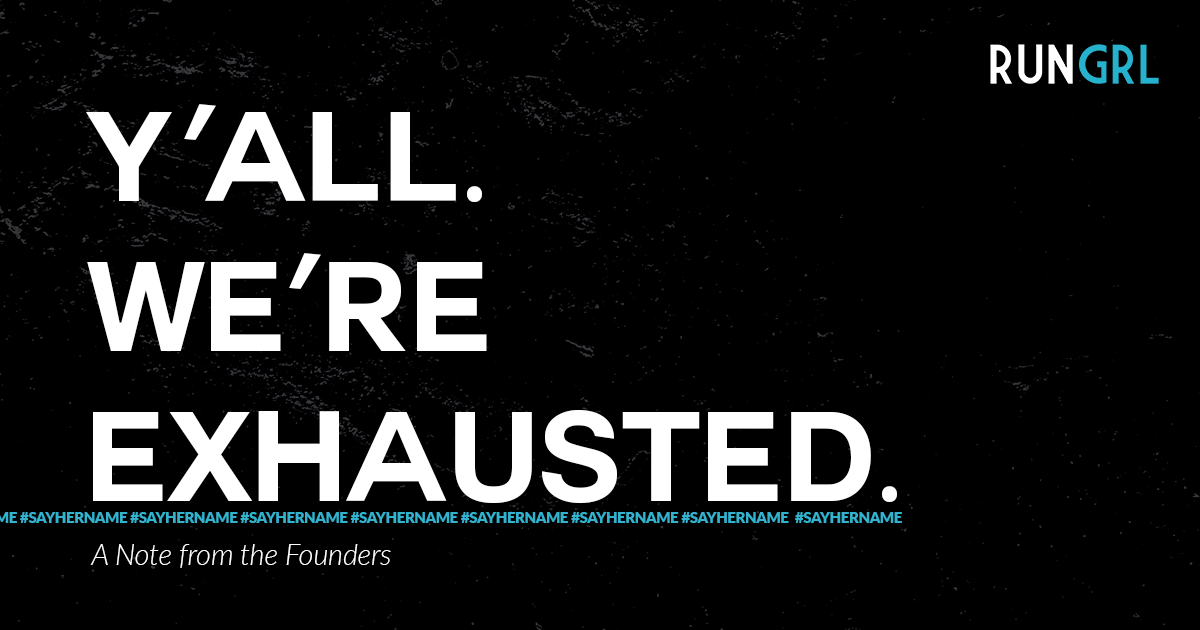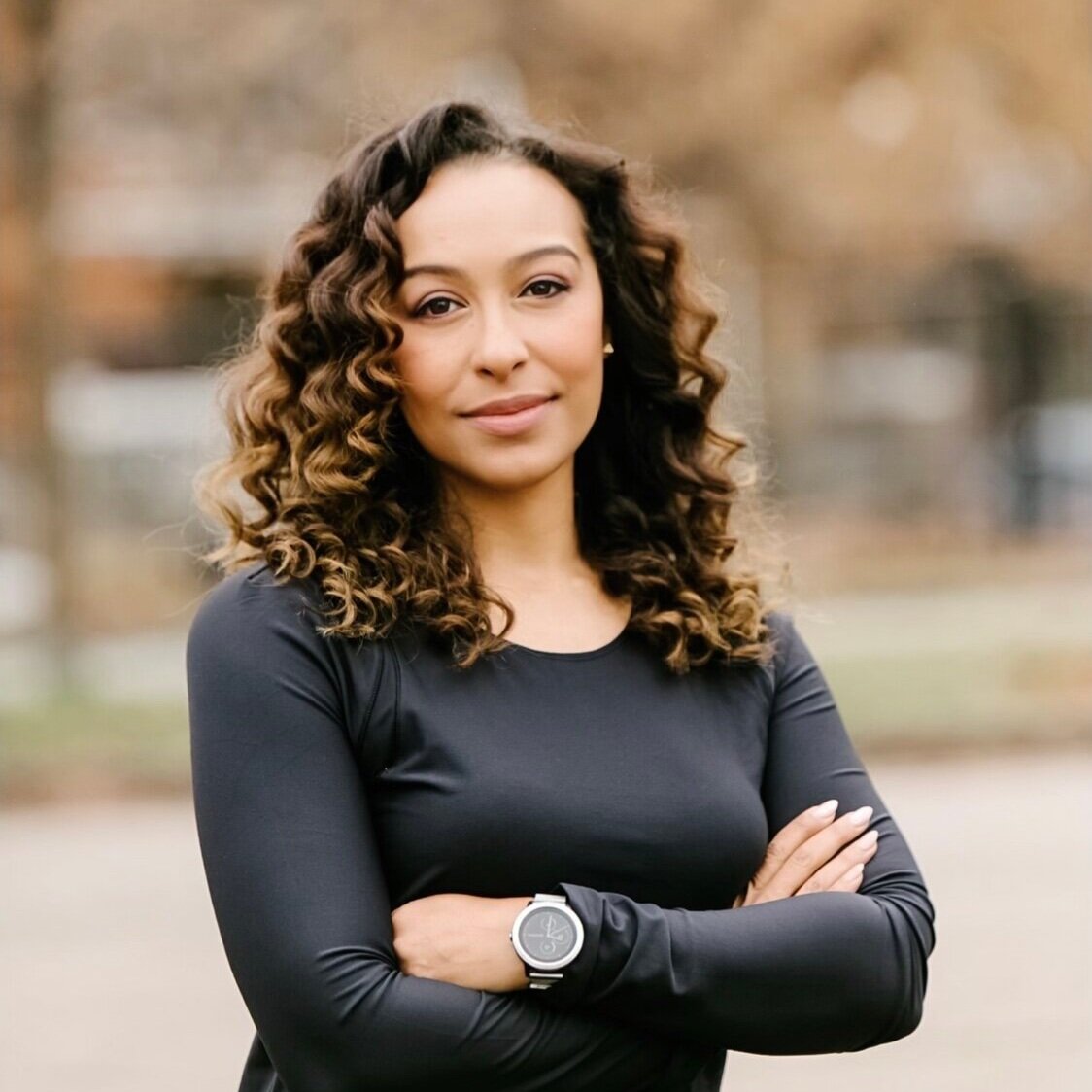Mind, Body and Space: Why Wellness is About More Than a Workout
Photo: Matthew Green for RUNGRL
By Na’Tasha Jones, Co-founder + CCO, RUNGRL
Mary Mbaba, MPH, knows quite a bit about wellness. As a yoga instructor and creative host of Vinyl and Vinyasa, she teaches yoga and meditation sessions--now via live stream--that promote holistic living and overall well being.
During these stress-relieving sessions and on social media, Mary often talks about the fact that Black mental health matters, especially during the ongoing public health crisis and racism pandemic. “I do this work for the lives of Black bodies,” she says. “Straight, same-gender-loving, men, women, queer, transgender, incarcerated, and released--some of whom will never have the opportunity to simply live.”
Mary’s philosophy on wellness and meditation has also been informed through her experience as a public health practitioner and social psychology doctoral student. She studies and teaches medical students how social influences, stereotypes, and personal biases affect Black people’s health risk outcomes, decision-making processes, and mental health coping strategies as an adjunct instructor at Howard University School of Medicine.
Overall, her goal is to merge her research strategy with general health and wellness practice. Her research on suicide, depression and substance use among marginalized Black populations is just one example of how she supplements her trauma-informed approach to wellness, utilizing yoga as a restorative technique for mental health upkeep.
RUNGRL co-founder Na’Tasha Jones chatted with Mary about her practice, and the role of wellness as a healing practice for Black people in particular.
Note: This interview has been edited for length and clarity.
Na’Tasha: What does it mean to you to be a Black fitness instructor and practitioner of wellness?
Photo via Mary Mbaba, by Bluflash
Mary: Being Black and curating safe, healing spaces designed for Black people is really important because personal wellness is deeply entrenched in community wellness. As an instructor, I’m giving back to people that are important to me, my immediate community, and to the Black race. For hundreds of years, Black people have endured traumatic psychological experiences such as slavery, civil wars, police violence and more, on a daily basis. More than anything, Black people--my people--need space to heal.
Na’Tasha: What constitutes a true Black wellness space to you?
Mary: To me, it is a space that is specifically meant for us, that is tailored for us. But also, I think a Black wellness space needs to be able to incorporate things that speak to the whole person and their experiences from a relatable perspective.
Na’Tasha: What would you say is the difference in having a Black wellness space vs. one not specifically intended for us?
Mary: It’s really a layered experience and different depending on the circumstance. You can be in a “Black space”, but then it might not be Black-owned, and that can be a totally different experience. A wellness space created for Black people, by Black people feels comfortable. There is a sense of trust and community.
Na’Tasha: Have you ever received comments from clients who chose you because of your representation?
Mary: I am honored to mentor the next generation of young Black yoga instructors and to teach many yoga practitioners of color. The feeling of having another Black yoga practitioner in the room with you is priceless. There is a sense of connection almost immediately. It warms my heart that so many Black yoga practitioners have come to me and thanked me for being the representation they needed as a Black yogini* and instructor.
Na’Tasha: What do you think are the next steps needed to make the wellness community more inclusive for Black people?
Mary: I think the next step is for leaders and pioneers of the Black wellness community to come together and continue to collaborate on home-grown solutions. Education and collaboration is key. Sometimes, there seems to be unnecessary competition between [some] fitness professionals, and even yoga instructors. Working together as much as possible can help achieve health and a common vision for the people.
When wellness is normalized in the Black community, our healing will be too, and our ability to create our own spaces. Wellness spaces that are not intended for Black people will never be able to fully and holistically address our people’s needs as a community.
Follow Mary’s wellness, learning and teaching journey on Instagram. Her first Saturday-of-the-month yoga classes, Vinyl and Vinyasa, can be found on Instagram and Facebook.
-
*A yogini is a female master practitioner of yoga.
Na’Tasha Jones
Co-founder + Chief Content Officer










